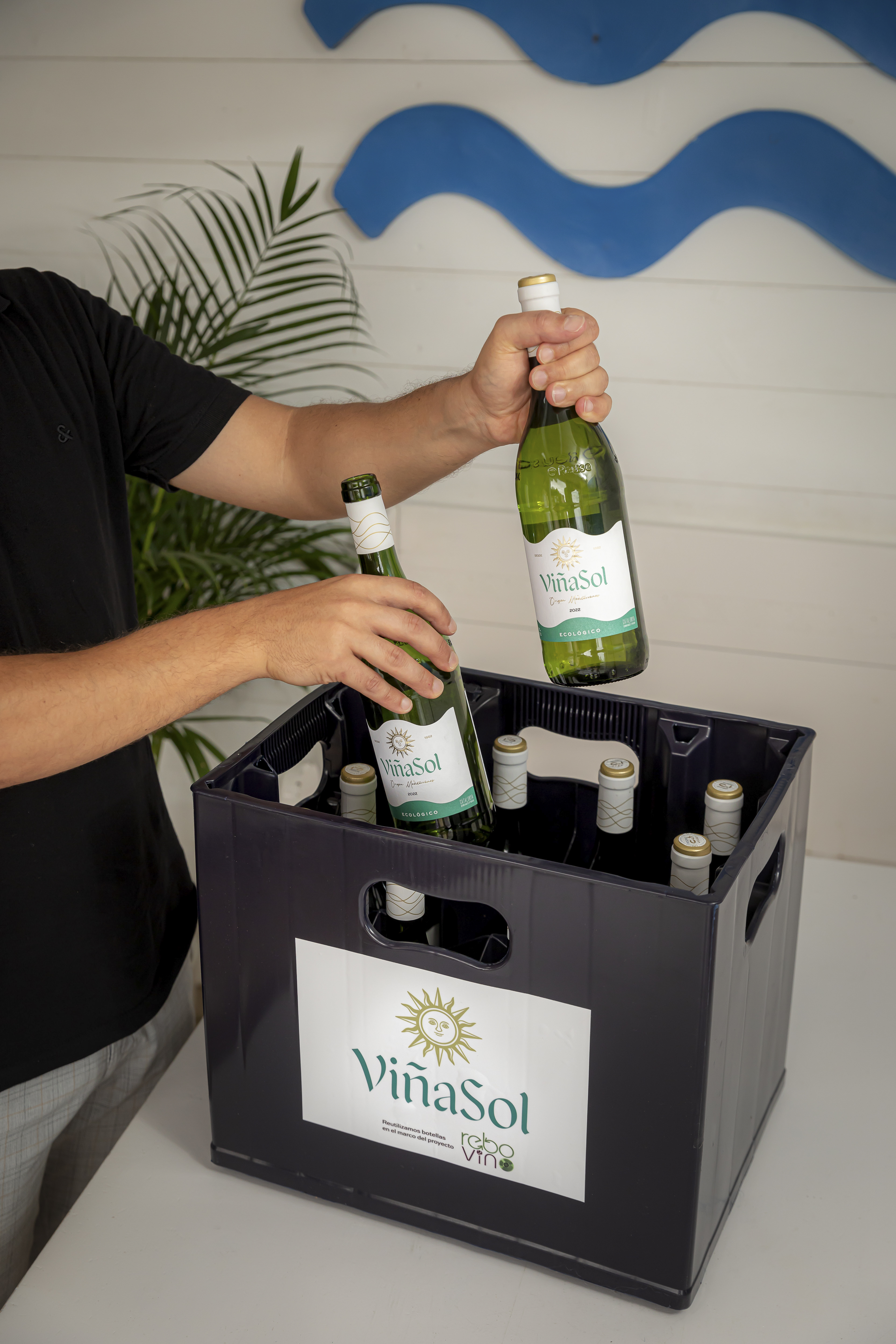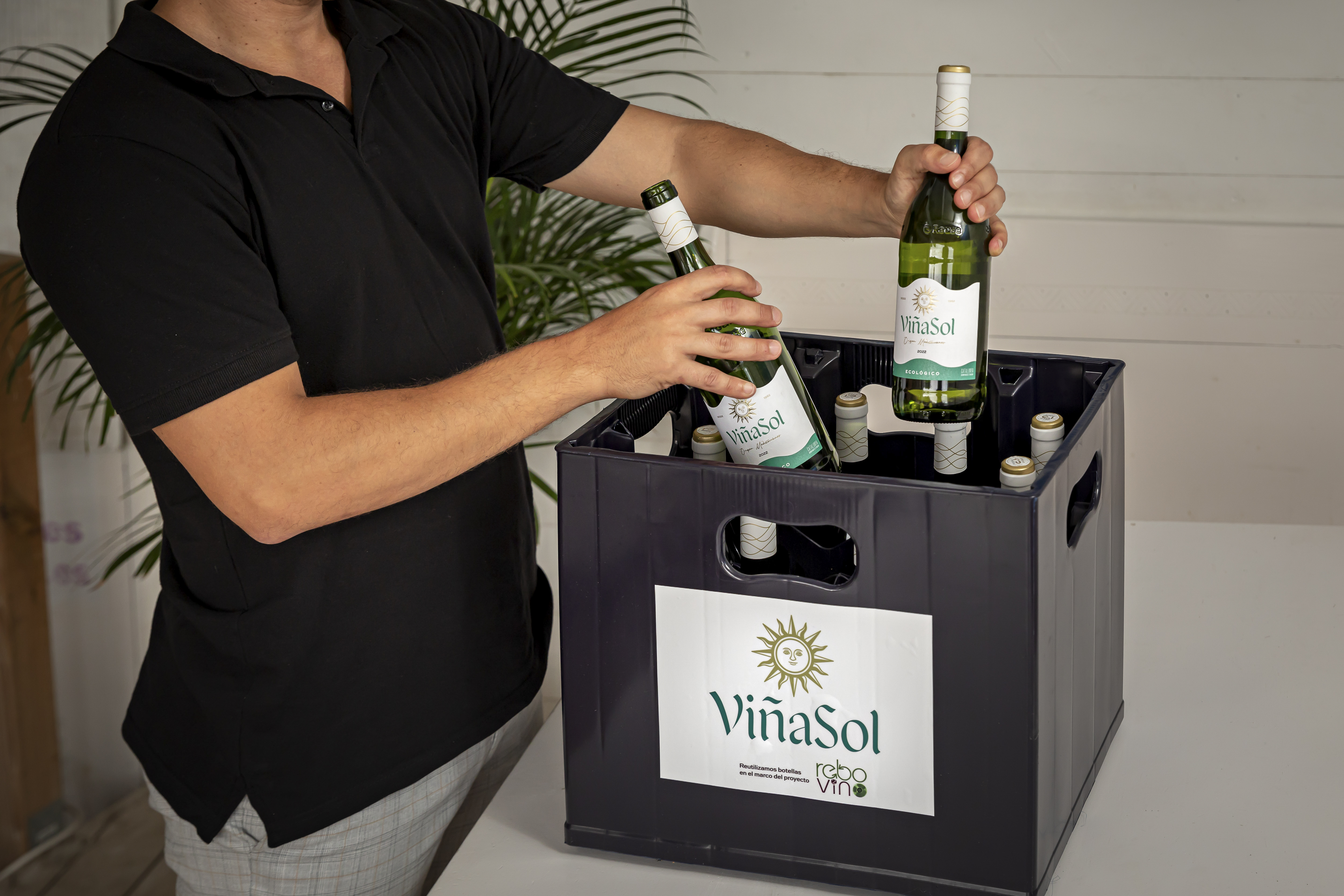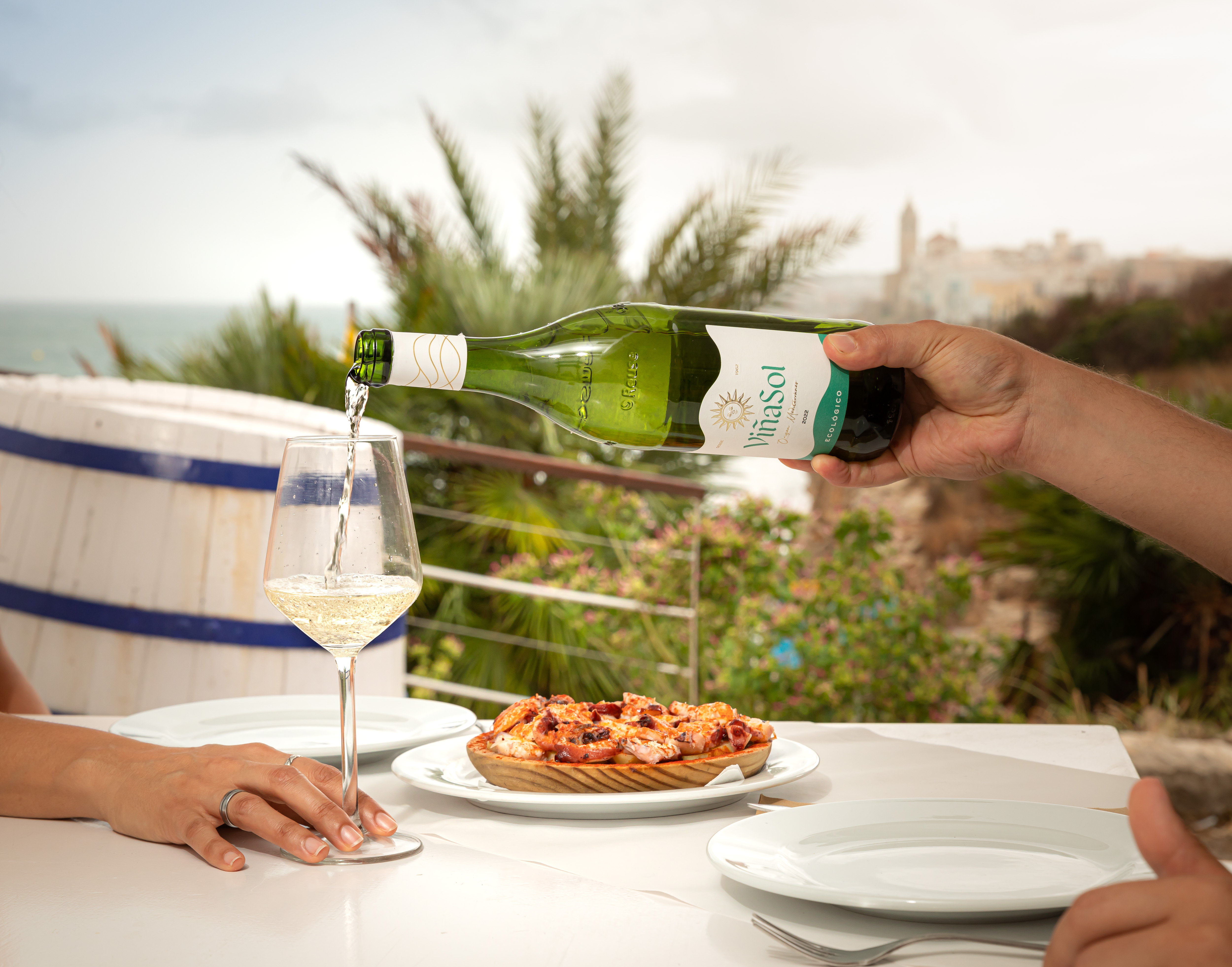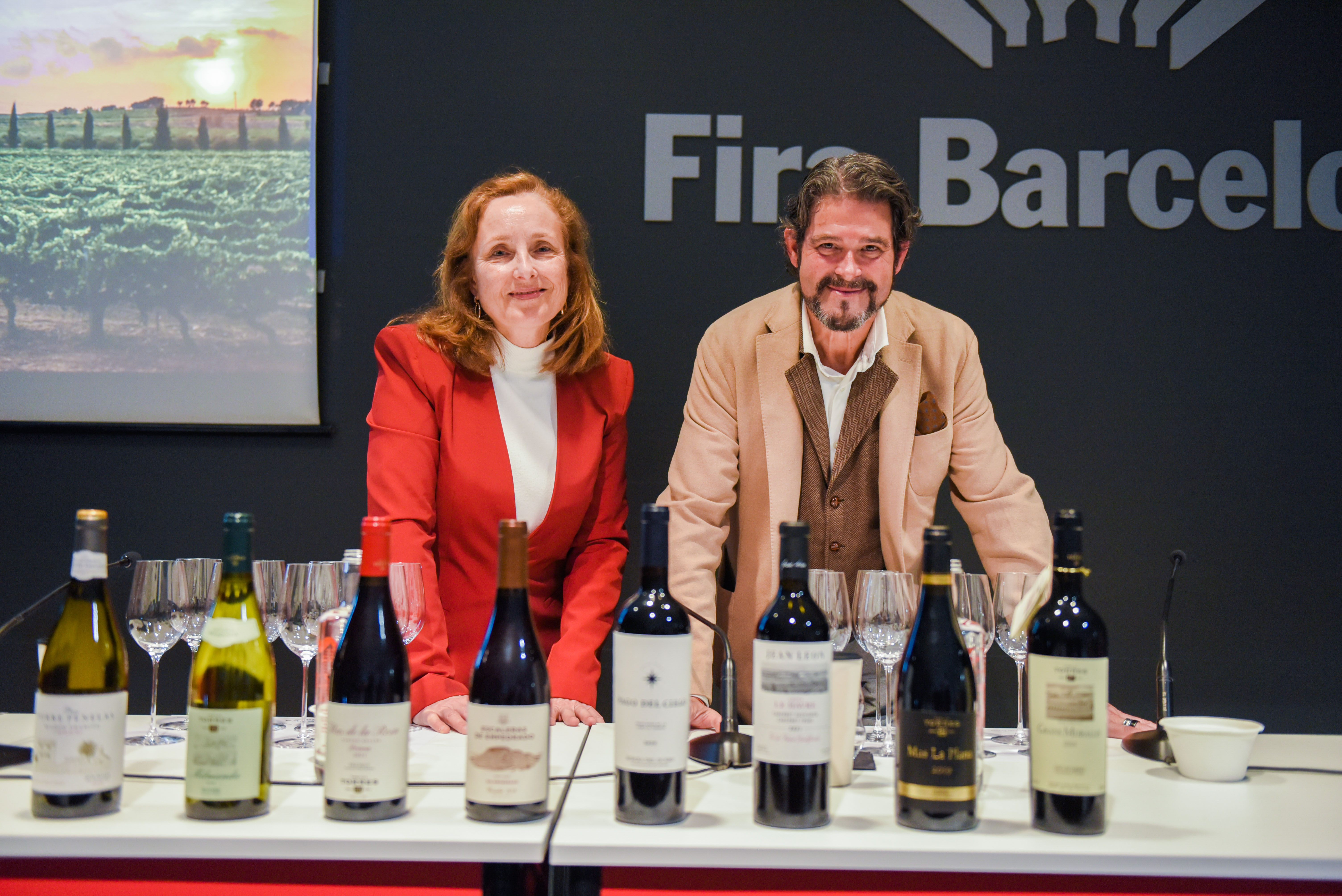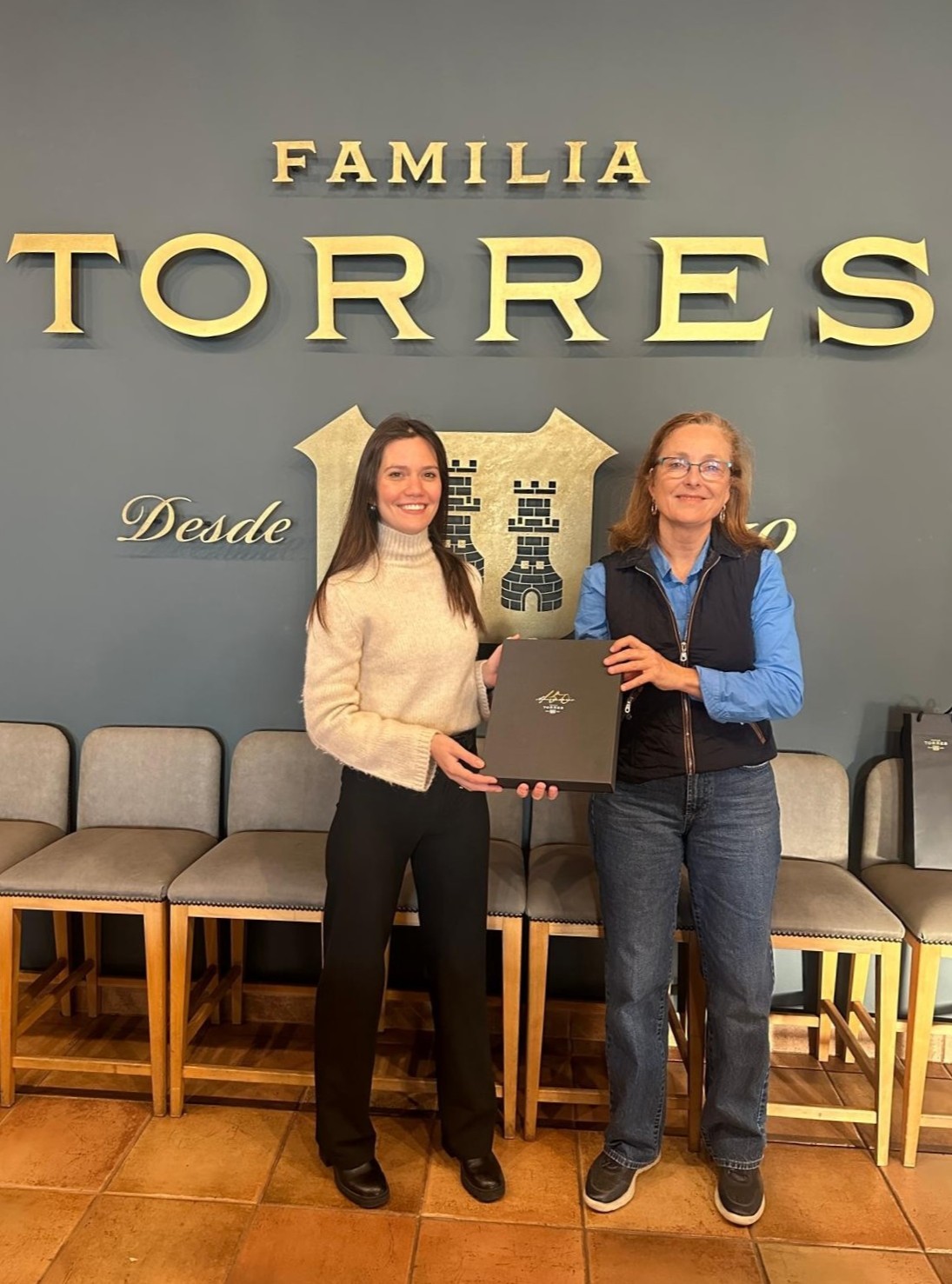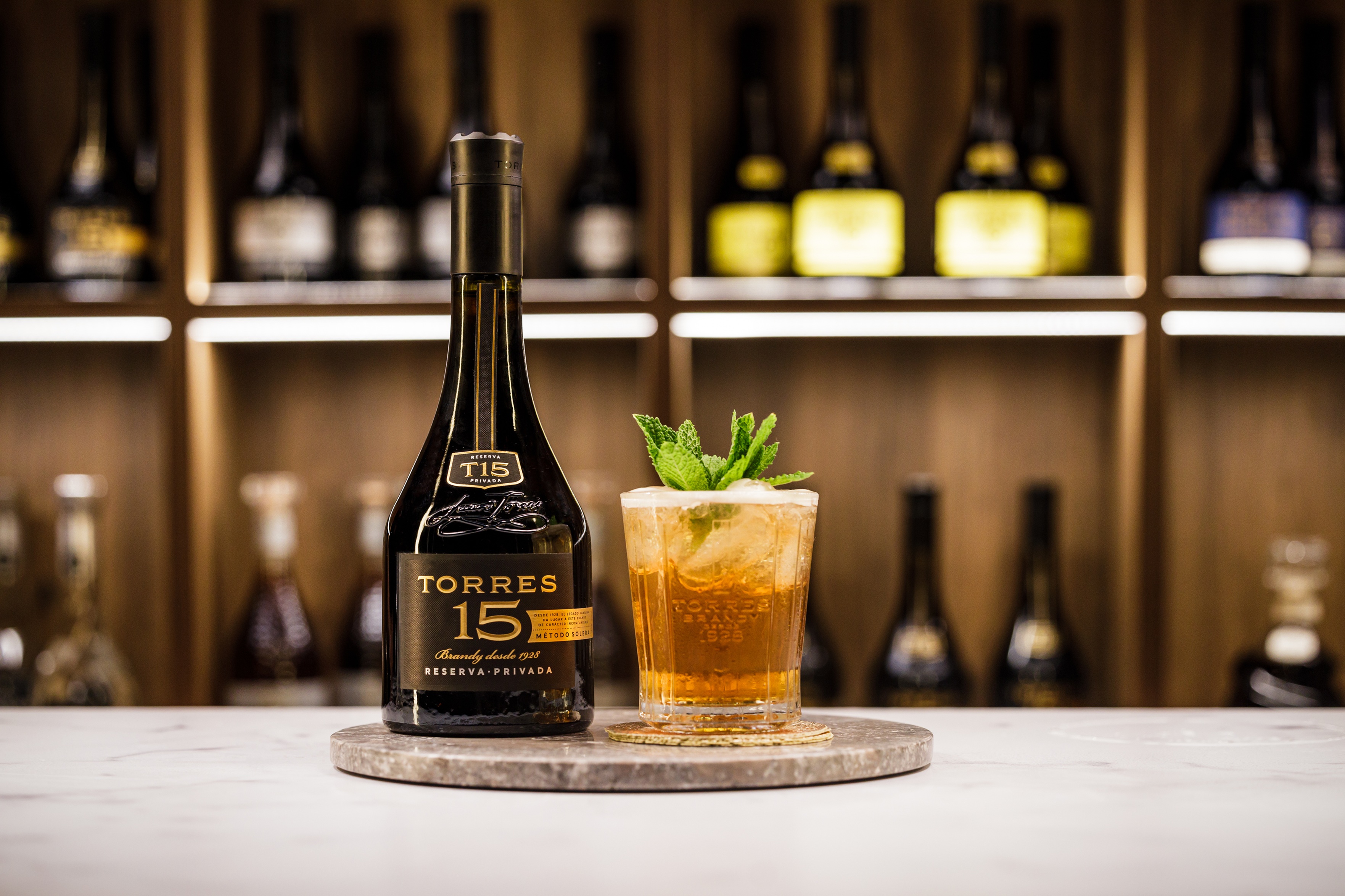Familia Torres launches a pilot trial of reusable glass bottles in restaurants to evaluate the technical, economic and environmental viability of this circular system compared to the conventional model of recycling empty wine bottles. The initiative is part of the REBO2VINO innovation project, led by the FEV (Federación Española del Vino), and is initially carried out in five establishments in Garraf (Barcelona): the restaurants in Sitges La Caleta, Los Vikingos, Costa Daurada and Can Laury and the restaurant in Sant Pere de Ribes Can Lloses. From October, it is expected to expand the list of participating restaurants, giving continuity to this experience throughout 2024.
This action is performed with the organic white wine Viña Sol (DO Catalunya), which is presented in a new and differential reusable bottle format, designed and manufactured by Verallia specifically for this project with the intention that it can become a reference model for other wines bottled in reusable packaging. This reusable bottle is easily recognizable by the mention REUSE that appears engraved several times on the top of the bottle. The wine is distributed in reusable boxes whose format facilitates the delivery and collection of the bottles and their storage, following the distribution model used by mineral waters in reusable glass bottles.
In the preparation of the pilot test for the Horeca channel that now starts, and thanks to the learnings obtained from its participation in the reWINE bottle reuse project between 2016 and 2020, Familia Torres has analyzed and identified the critical points in each of the stages from a technical, economic, food safety and quality perspective, including labeling, direct and reverse logistics and bottle washing. In addition to the selection of the box for the delivery and collection of bottles, the winery has carried out the necessary tests to choose for the labels a specific type of paper and adhesive that facilitates the washing and subsequent recovery of the bottles and ensures their functionality.
The reuse of glass bottles would considerably reduce the CO2 emissions generated by the wine industry, as well as the use of resources, key aspects in the current context of climate emergency. In the case of Familia Torres, packaging material accounts for about a quarter of its total carbon footprint, with glass bottles having the greatest impact on this category (according to the audited emissions balance corresponding to Miguel Torres S.A for the year 2022).
For Miguel A. Torres, president of Familia Torres, "the reuse of glass bottles is an excellent alternative for certain markets and types of wines to advance in the reduction of emissions, provided that a standard bottle format can be established, ideally at European level". "It is the next step we want to take, after having managed to reduce the weight of the bottles we use for our wines as much as possible," he adds.
Since 2008, within the framework of its Torres & Earth environmental action plan, Familia Torres has been gradually reducing the weight of the glass bottles used in all its wineries to reduce its carbon footprint. Currently, the average weight of bottles of 75 cl. that produce their wineries in Spain is below what is considered a light bottle throughout Europe, 420 grams.
In the REBO2VINO project (October 2022 - March 2025), 10 entities representing different parts of the wine value chain and the product life cycle participate: Federación Española del Vino (FEV), Familia Torres, González Byass, Verallia Spain, Minsait (an Indra company), Artica Ingeniería e Innovación (artica+i), the UNESCO Chair in Life Cycle and Climate Change ESCI-UPF. Asociación de Fabricantes y Distribuidores (AECOC), Ecovidrio and Hostelería de España also collaborate. REBO2VINO has a grant of € 563,721.90 financed entirely by the European Agricultural Fund for Rural Development (EAFRD) of the European Union, Directorate General for Rural Development, Innovation and Agri-Food Training (DGDRIFA) as the managing authority responsible for the implementation of the FEADER aid, within the framework of the National Rural Development Program 2014-2022, with funds from the European Recovery Instrument (EU Next Generation).

